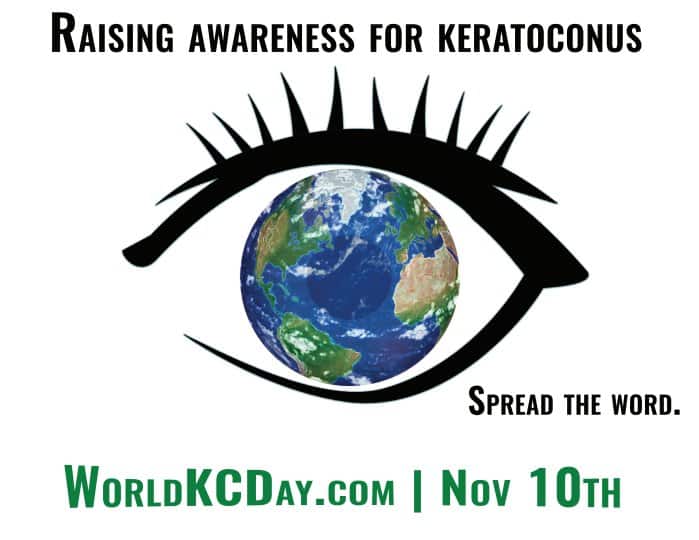Have you been diagnosed with Keratoconus? Have you wondered about corneal crosslinking CXL and how life is after?
Today, November 10th, has been named World Keratoconus Day and we are doing our duty by spreading awareness about this corneal disease and the treatment options. We thought the best way would be to speak to our patients.
Dave is 30 years old now. He was diagnosed with Keratoconus in his mid 20’s. Dave came to see Dr. Charles Kaiser at our office and had the corneal crosslinking CXL procedure in 2014. It has been 2 years. Dave was so happy to share his experience as he too, did a lot of research after his diagnosis and decided on going with CXL even when its trial phases. As of this year, CXL is now approved by the FDA. Great news!
Please see below for all of Dave’s honest responses to our questions 2 years after crosslinking!
How did Keratoconus affect your vision and your life?
Keratoconus affected everything. I noticed when I was driving that my vision wasn’t the same before as it used to be and my eyes seemed irritated tremendously all the time. I went to 5 different doctors and one told me “all you need is new glasses.” Can you believe it?
But I kept searching, I knew something else was wrong with my eyes.
The 5th doctor I went to put me in the specialty contact lenses (rigid), and they helped but my eyes were so sensitive I had to take them off a lot. As you can tell this whole process was nerve-wracking tremendously. My eyes were getting worse. Every 3 months I had to go to a doctor. It took about about one and a half years to get the crosslinking done. The Doctor in Flagler recommended Dr. Kaiser for the crosslinking trials. I was moving and getting married at the time!
How did you feel when you were diagnosed? Did you do online research?
Yes it’s the first thing I did. The thing that was really terrible is that every time I went to the doctor they never told me I had keratoconus. When I was 25, and I insisted to them that my vision was NOT the same, they did more testing and I got referred around. I was finally diagnosed
What was your vision like before surgery? Blurry. Bad. I remember I couldn’t see any street signs.
Tell us about your CXL surgery! I remember my eyes had to be held open for 3-4 hours, and drops were put in every 2 minutes almost. I had to keep looking into a light. I only took 2 days off of work after!
However, I started to note the changes immediately! I usually couldn’t wear my contacts all day. My eyes would get so tired and exhausted. After having the crosslinking procedure done, I can wear them all day with no problem. I also noticed my eyes are not as pointy as they used to be., even my wife pointed it out!
Corneal Crosslinking has helped thousands of patients. Each outcome is different, just like with every surgery. The most important goal of Crosslinking (CXL) is to STOP the progression of Keratoconus, to keep it from getting worse.
As most of you reading this know, the outcome that most keratoconus patients try to avoid is the need for a corneal transplant. Specialists all over the world are working vigorously to keep their patients from needing this end result. Luckily for patients like Dave, the visual results and feelings of more comfort, are felt pretty quickly. Help spread the word about this with your friends by sharing this!
If you or anyone you know has been diagnosed with Keratoconus, we are here to help! 305-598-2020
#NationalKCDay #WorldKCDay #keratoconus #crosslinking #cxl


